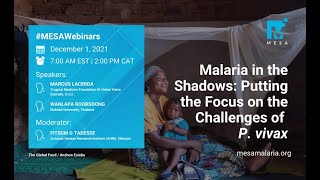Last Updated: 12/12/2024
Operational Feasibility of Appropriate Plasmodium vivax Radical Cure with Tafenoquine or Primaquine After Quantitative G6PD Testing in Thailand (ARCTIC)
Objectives
The Assessing Radical Cure Treatment In routine Care (ARCTIC) study has a primary objective:
- to investigate whether P. vivax patients ≥16 years old are treated with tafenoquine (TQ) in accordance with the appropriate level of G6PD enzyme activity.
And the following secondary objectives:
- to investigate whether P. vivax patients ≥16 years are treated with daily primaquine (PQ) in accordance with the appropriate level of G6PD enzyme activity;
- to assess the correct application of the radical cure treatment algorithm for P. vivax patients receiving TQ or PQ;
- to measure the frequency of reported drug-induced Acute Haemolytic Anaemia (AHA).
ARCTIC is an operational feasibility study looking at the real-world use of point-of-care, Glucose-6-Phosphate Dehydrogenase (G6PD) testing and appropriate radical cure treatment with tafenoquine (TQ) or primaquine (PQ). This is the first such study using single-dose tafenoquine in the Asia-Pacific region and should provide evidence to the Thai Ministry of Public Health on the potential role for these tools in supporting the country’s 2024 malaria elimination goal.
ARCTIC is taking place in the Yala and Mae Hong Son provinces, where quantitative G6PD testing has been available for routine use prior to providing PQ treatment for P. vivax malaria relapse prevention at district hospitals and malaria clinics since 2020. Like primaquine, tafenoquine causes dose-dependent haemolysis in individuals who are glucose-6-phosphate dehydrogenase deficient, so testing individuals to ascertain their G6PD status prior to treatment is important for patient safety. Before the study start, the relevant staff at all participating sites were re-trained on the quantitative G6PD test procedure and the radical cure treatment protocol.
The study will take place in two phases, starting initially in higher-level health facilities such as hospitals, and expanding to lower-level malaria clinics after an assessment by an Independent Study Oversight Committee. This assessment will be based on an interim analysis to be conducted with data from the first 40 patients seen at the higher-level facilities. It is anticipated that it will take a total of about 6 months to complete data collection at the study sites.
Phase IV, observational study.
May 2022


